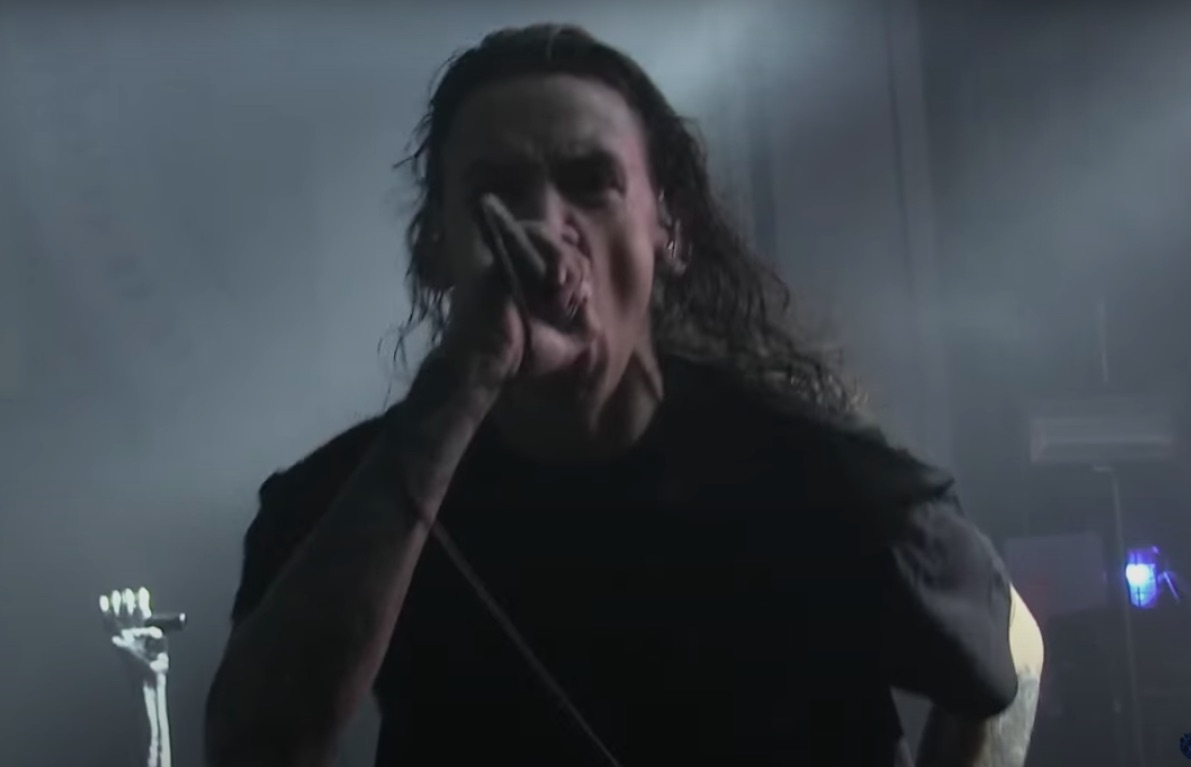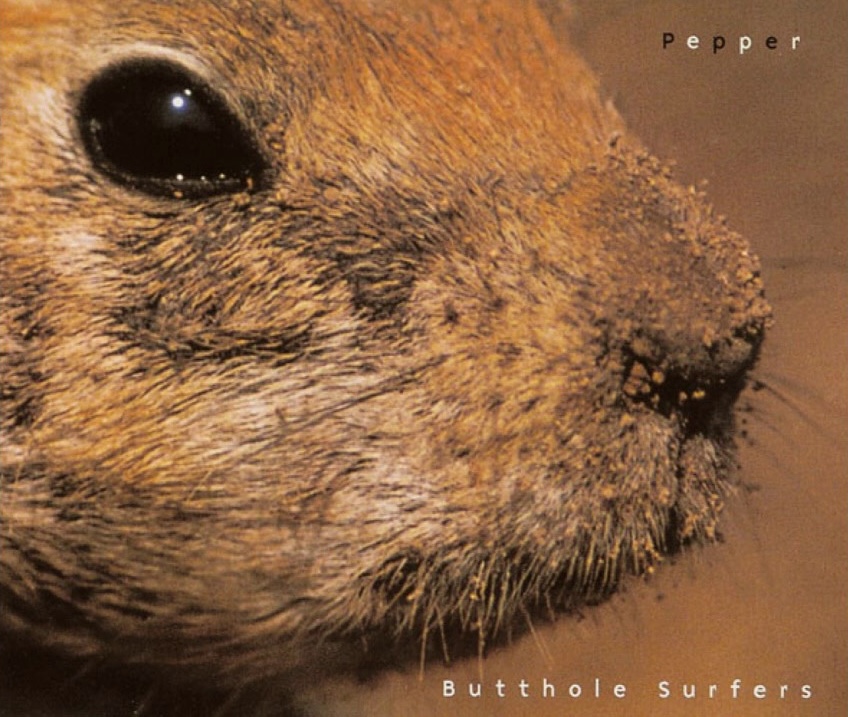A couple of weeks ago, Wrestlemania went down in an empty gym. WWE moved its biggest annual event from a Tampa football stadium to its Orlando practice facility. The live Wrestlemania audience is usually somewhere in the range of 70,000. This year, it was zero -- or, if you include the commentators, host Rob Gronkowski, and buddy-of-host Mojo Rawley, four. This made for a strange and depressing spectacle: WWE's absurdly talented and well-trained wrestlers doing their usual gestures and taunts and theatrical flourishes for an audience that simply wasn't there. It really underlined how necessary an audience, even a small one, is to the pro wrestling experience. Without an audience, the entire thing seemed corrupted and tone-deaf and wrong.
Pro wrestling and hardcore are two totally different American artforms, though god knows there's crossover. And yet both are physical, interactive phenomena, defined almost entirely by what it's like to be there. You can listen to all the records and watch all the YouTube videos you want, but if you're not in the room, you're not really doing hardcore right. More than any other genre of music I can name, hardcore is an immediate and immersive thing -- a thing to be physically felt as much as heard. At hardcore shows, bodies often start flying when the first shriek of guitar feedback rings out, before anyone even sings or plays a note. You want to be in there with the flying bodies. Maybe you want to be one of the flying bodies.
"We're doing this shit together," said Jami Morgan, frontman of Pittsburgh metallic hardcore colossus Code Orange, 40 minutes into the band's mid-March record-release show. "But I want you to look at something." Morgan grabs the camera and pushes it toward the dark and empty club before him. "This is what happens when the rat fucks who run this world don't care about you, they don't care about about me, they don't care about any of us. They'll take and take and take until there's nothing fucking left." He's not saying this to get a crowd response. There is no crowd to respond. He's saying it because the emptiness of that club cuts right to the bone marrow.
This is a vast generalization, but hardcore is music made by damaged people, for damaged people. People, by and large, come to hardcore because they need hardcore. It's a visceral cathartic outlet, a mutual support system, a mass channeling of ugly feelings. The current global situation vindicates about a million hardcore lyrics from the past 40 years, showing us the destructive effects of unchecked capitalism and of the widespread ruling-class indifference to human life. They're talking about digging mass graves in New York parks. That could've been a Biohazard lyric.
Right now, thanks to this squalid state of affairs, nobody is getting the catharsis that a hardcore show can grant. We don't know when we'll get it, either. LA's Sound And Fury festival is still scheduled for July, but I'd be shocked if that happens. It's harder and harder to imagine a time when we'll be back in those rooms. This is a small concern in the grand state of things, but the feeling of being in one of those rooms is a feeling I already miss terribly.
When I started this column a few months ago, I wanted to underline the idea that the live show is the entire point of hardcore. I wanted every installment to be about a live show. That can't happen now. Early in on the quarantine, there were a few admirable attempts to translate the live show, as much as anyone could, into something that people could enjoy during quarantine. Code Orange were the first to give it a shot, and thus far, they've been the best. When Code Orange came out with their grand and spectacular new LP Underneath, they'd planned out a hometown record-release show with Every Time I Die, Zao, Jesus Piece, Machine Girl, and Facewreck. This would've been a fucking sick show. It was scheduled to go down right around the time that quarantine kicked off. It couldn't happen. So Code Orange improvised, throwing together a last-minute empty-club show and livestreaming it on Twitch.
Considering the short notice and the difficulty involved, what Code Orange pulled off with that show is simply staggering. Code Orange are one of the biggest bands in hardcore -- big enough that plenty of people within hardcore are about ready to write them off. They've played WWE events and recorded the new theme music for Wrestlemania headliner Bray Wyatt. (There's that crossover again.) They've collaborated with Slipknot. They were the one hardcore band booked to play this year's Coachella. As they've grown in prominence, Code Orange have added different shades to their raw, chaotic stop-start sound -- goth, industrial, nü-metal. Underneath is, in a lot of ways, a deeply silly record, but it's silly in ways that only increase my affection for it. It's that real Crow-soundtrack shit. I love it.
Without the resources that come with being one of the biggest bands in hardcore, Code Orange could've never pulled off the empty-club show the way they did. The band had serious production value working for them -- lights, fog, a mic stand shaped like a skeleton hand. But they're also an absolutely fearsome live unit, something that they got across in that livestream. They whipped across that stage, spinkicking and headbanging and working hard to project their physical presence. Until very recently, Morgan was a drumming lead singer, a truly rare thing in hardcore. He's now come out from behind the drum kit, and it turns out that he knows how to hold the stage, how to use his body. Everybody in that band does. There's simply no way that a video of a band playing in an empty club could have anything like the impact of an actual live show. But Code Orange did everything they could to at least make you feel like someone's elbow might fly out and smash you in the eye.
A week after that Code Orange livestream, somebody else tried it. Year Of The Knife, the young Delaware band who were slated to be one of the openers on Code Orange's spring tour, played a 20-minute set in a New Jersey studio. Sunny Singh, the tireless hardcore-show videographer who seems to post 12 sets a day on his Hate5six YouTube channel, did the livestream. (He helped out with the Code Orange one, too.) Year Of The Knife put up an online tip jar, sold exclusive merch, and generally did everything they could to make it special.
[videoembed size="full_width" alignment="center"][/videoembed]
It was special, in a let's-try-to-figure-this-out-together kind of way. YOTK recently recorded their first proper full-length with Coverge's Kurt Ballou, though god knows when they'll get to release it now. The songs they played in that studio were impressively heavy. They had no way to spiff the show up; the only real effect was the fisheye lens on the camera. It was still five kids in a small room trying awkwardly to perform to nobody, and that's rough. But it was something. Given the circumstances, something was a lot.
We probably won't even get that for a while. Those livestreams happened before many of us fully realized what social distancing entailed. At this point, kids aren't even getting together in their garages to play songs together on Instagram Live. That's good. They shouldn't. During quarantine, a lot of the best things I've seen have been singer-songwriters playing short acoustic sets into their webcams. That can be cool as hell, but it's not remotely compatible with hardcore. For the foreseeable future, then, hardcore is on pause. That sucks. I blame the rat fucks who run this world.
10. Guff - "Frontal Lobe Fuckyfuck"
The name of this song is "Frontal Lobe Fuckyfuck." Do I really have to tell you anything else to sell you on it? You should've already clicked play. Guff come from Oslo, and their version of hardcore punk is ugly and raw and chaotic. Their singer sounds like he gargles broken glass instead of mouthwash in the morning. Also, I cannot possibly overemphasize that this band has a song called "Frontal Lobe Fuckyfuck." [From self-titled EP, out 5/1 on Byllepest Distro.]
9. Constrict - "Deceiver"
It rules that people can play in a bunch of different hardcore bands, and those bands can sound so much like each other. The members of LA's Constrict, for example, play in heavy-ass metallic hardcore bands like Vamachara, God's Hate, and Disgrace. In Constrict, they've taken time off from those bands to make... heavy-ass metallic hardcore. "Deceiver" could've come from any of their other bands, and I wouldn't have known the difference. But those bands all stomp ass, and so does this song. The sudden flare-up of a Dick Dale-style quasi-Middle Eastern guitar solo at the end of the song is a great touch. [From No Eden EP, out now on Flatspot Records.]
8. Sial - "Tikam Lidah"
One of the coolest things about listening to punk bands from different parts of the globe is having no idea what's going on. Sial are from Singapore, and their sound is so scuzzy and noisy that I don't think I'd know what was going on even if they sang in English. But they sing in Malay, so I'm extra lost, and it kicks ass. I can only guess what their lyrics are about -- "Tikam Lidah" -- translates to "Stab The Tongue," Google tells me -- but they sound super fucking pissed. Also, there's a hypnotic chanted bit at the end of "Tikam Lidah" that sounds like absolutely nothing I've ever heard before. [From Tari Pemusnah Kuasa, out 5/1 on La Vida Es Un Musos Discos.]
7. Fuse - "Deadlock"
There are two bands from Singapore on this month's list, which is not something I planned and which I think is cool as hell. Apparently, living in a dictatorship will rile a motherfucker up. Fuse, unlike Sial, sing in English. Their style recalls the hard-grunt intensity of old-school NYHC; I'd call them a tough-guy band, except none of their members are guys. The big moment here -- "There! Will Be! A change!" -- is that real goosebump shit. [From This Segregation Will End EP, out soon on Quality Control HQ.]
6. Xibalba - "En La Obscuridad"
LA's Xibalba have been one of the heaviest bands in hardcore for many years, and they're somehow only getting heavier. The first single from Xibalba's first album in five years is practically death metal. Generally, hardcore bands are good at being heavy or good at being fast. It's not easy to do both at the same time. Xibalba do that here. This song absolutely refuses to let up for one single second. I've never been trapped in a collapsing mine shaft -- yet -- but I bet it feels something like that breakdown sounds. [From Años En Infierno, out 5/29 on Southern Lord.]
5. Three Knee Deep - "Devil's Playground"
Tampa's Three Knee Deep make absolutely unreformed goon music. Their shit is beautifully ignorant. Three Knee Deep's vocals are either ugly-as-hell foul-smelling-burp death metal growls or even-uglier quasi-rapping. This could go wrong in any number of ways. (There's a mini-wave of rap-metal-influenced hardcore bands out there right now, and almost all of them suck. Don't get me started on that.) But Three Knee Deep mean that shit, and they do it with such overdriven knucklehead panache that my resistance absolutely crumbles. When Three Knee Deep get to touring behind their debut album, people are going to die, and not from coronavirus. [From Three Knee Deep, out now on Triple B Records.]
4. Gumm - "Slipping"
For the most part, hardcore is hot-blood music, music by and for people who have trouble holding things back. That's why it's so fascinating when hardcore bands attempt to channel the icy, spectral influence of late-'70s and early-'80s UK postpunk. There's been a lot of that over the years; a band like Ceremony started out as full hardcore and then eventually moved to full postpunk. On "Slipping," the Chattanooga band Gumm toggles the switch back and forth with expert timing, moving from Joy Division-style simmer to sudden blooming fireballs of screaming passion. Coming from them, the combination makes sense. [From Und3rdogs: The Rise Of The Alphadogs compilation, out now on Dog Years Records.]
3. End - "Pariah"
"Cauterizing wax-like wounds on wings of flies, I will grind my fingers into knives," Brendan Murphy bellows. I believe him! Murphy is the leader of metalcore stars Counterparts, and that band is plenty heavy. But Murphy evidently saves his real heavy shit for End, a band that also includes members of Fit For An Autopsy, Shai Hulud, and Misery Signals."Pariah" radiates violent and noisy disgust in every direction, and it sounds like what might happen if the Jesus Lizard and Hatebreed were somehow the same band. I fuck with it. [From Splinters From An Ever-Changing Face, out 6/5 on Closed Casket Activities.]
2. Kohti Tuhoa - "Taas Sivussa"
You could argue that the Finnish band Kohti Tuhoa don't belong in a hardcore column, since they fall more on the crust-punk/D-beat side of things. I would counter this argument by throwing you face-first through a brick wall and telling you to stop being such a pedant. For years, Kohti Tuhoa have been making some of the nastiest, hardest-ripping music on either side of the Atlantic. A song as fast and disgusted as "Taas Sivussa" -- Finnish for "Again On The Side," and I have no idea what that's supposed to mean in this context -- is the kind of frantic rage blackout that obliterates petty genre distinctions. [From Elä Totuudesta EP, out 5/15 on La Vida Es Un Mus Discos.]
1. Rotting Out - "Boy"
Walter Delgado, frontman of San Pedro head-rippers Rotting Out, has one hell of a story, and he's endured hardships that most of us can barely contemplate. Rotting Out just released Ronin -- their first album in seven years, and their first since Delgado finished an 18-month prison sentence for trafficking marijuana -- and they end it with "Boy," probably the grandest and most epic song in their discography. Rotting Out are a classicist hardcore band, and their songs usually clock in around the two-minute mark. "Boy" is five and a half minutes -- an epic length in this genre -- and it's a raw, cathartic account of the time Delgado was sexually abused as a child. (He talked about it on this episode of the Forum Of Passion podcast, which I recommend without hesitation.) When the song builds to its tremendous gang-chant conclusion, it transforms: One man's trauma easing into a vast and tribal statement of togetherness, of people surviving shit by relying on each other. I can't think of a better example of what hardcore can do. [From Ronin, out now on Pure Noise Records.]






